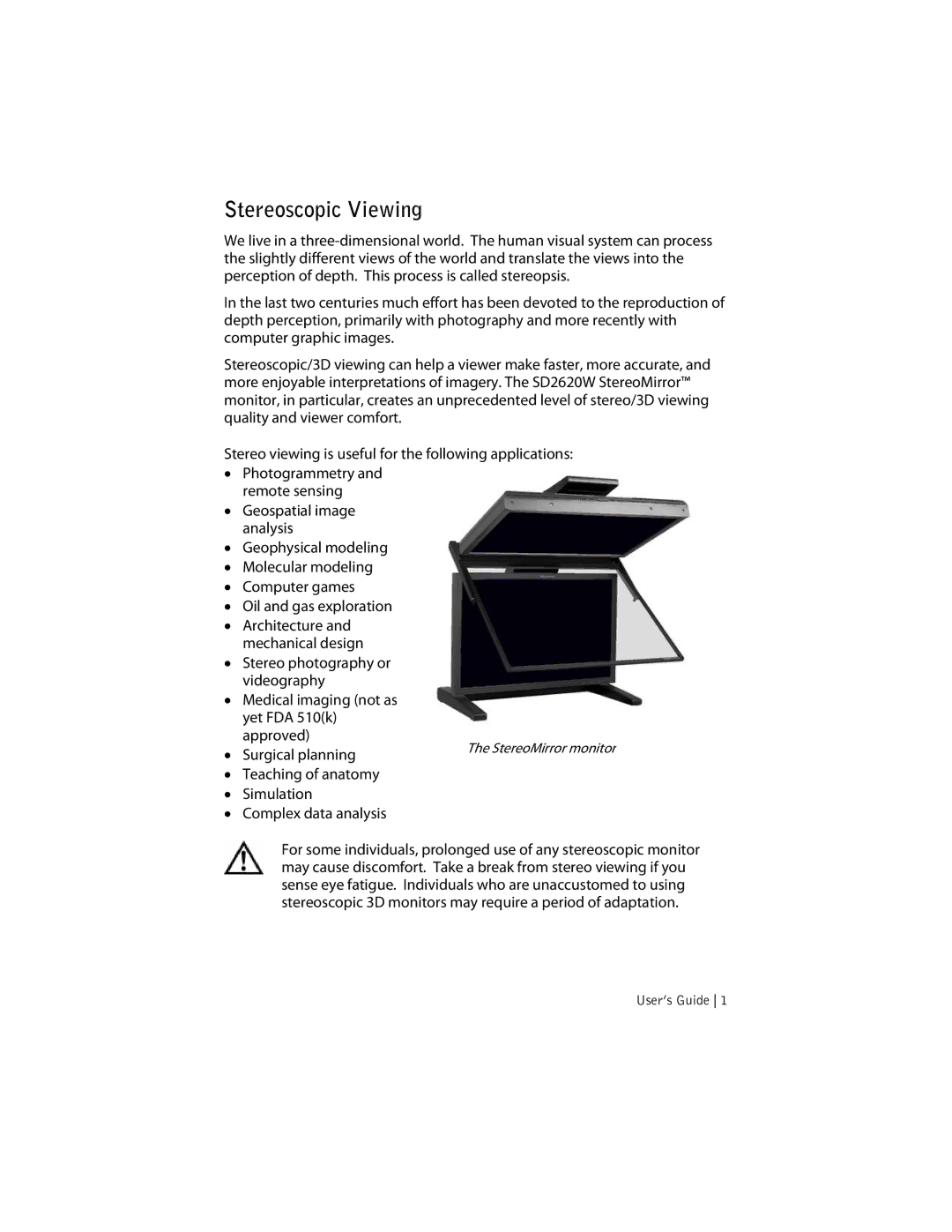
Stereoscopic Viewing
We live in a
In the last two centuries much effort has been devoted to the reproduction of depth perception, primarily with photography and more recently with computer graphic images.
Stereoscopic/3D viewing can help a viewer make faster, more accurate, and more enjoyable interpretations of imagery. The SD2620W StereoMirror™ monitor, in particular, creates an unprecedented level of stereo/3D viewing quality and viewer comfort.
Stereo viewing is useful for the following applications:
•Photogrammetry and remote sensing
•Geospatial image analysis
•Geophysical modeling
•Molecular modeling
•Computer games
•Oil and gas exploration
•Architecture and mechanical design
•Stereo photography or videography
•Medical imaging (not as yet FDA 510(k) approved)
• Surgical planning | The StereoMirror monitor |
•Teaching of anatomy
•Simulation
•Complex data analysis
For some individuals, prolonged use of any stereoscopic monitor may cause discomfort. Take a break from stereo viewing if you sense eye fatigue. Individuals who are unaccustomed to using stereoscopic 3D monitors may require a period of adaptation.
User’s Guide 1
